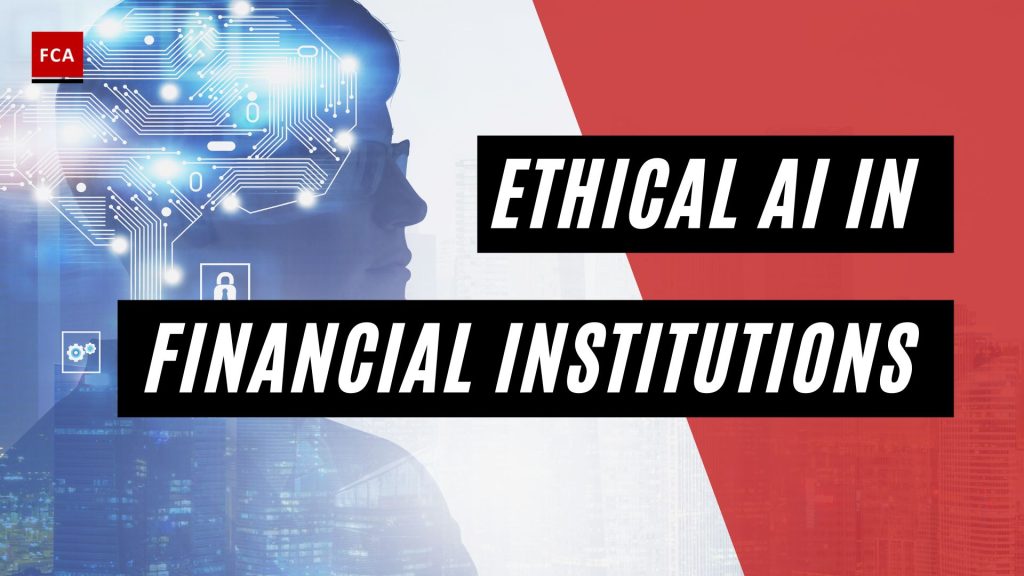Ethical AI in financial institutions is paramount to ensuring transparency, fairness, and accountability in automated decision-making processes, protecting both consumers and the integrity of the financial industry.
Biometrics may quickly become embedded in everyday lives, particularly technology associated with facial biometric commonly used to unlock smartphones and access online applications provided by financial institutions or other organizations.
Biometric verification is powered by AI systems that rely on trained data models which enable them to identify, recognize, and categorize facial images accurately and fast. Biometric verification technology has real consequences for real people therefore, it must be built considering the compliance and ethical requirements.
The technology needs to be subject to data compliance and ethical parameters before implementation. Within the financial institutions, this technology is particularly important in areas such as in banking, payment service providers (PSPs), etc.
Ethical AI in Financial Institutions
There are various key factors typically associated with ethical AI including:
- fairness and bias,
- trust and transparency,
- privacy,
- accountability,
- security, and
- social benefit.

In case anyone of the above fails, it may have significant and serious effects for the customers or users. Delaying the countering of the issue, or passing the responsibility to regulatory compliance teams is no longer an option for the financial institutions. Management of institutions must now take an active role to address the weaknesses in their applications and be accountable for the performance of AI technology that they implement for various compliance processes, such as AML and KYC compliances.
The importance of using AI is increased many-folds because of involvement of multiple functions of finance from fraud detection and risk management to credit assessment and credit ratings. If AI is not deployed considering ethical requirements, then it may damage the customer trust level in the institution and would cause decline of market share.
Currently, when matters with AI automation arise, human interference is often the solution. The labour-intensive contingency is not always the best answer as humans are susceptible to to systemic bias. It is usually tacit that bias occurs in systems seeking to differentiate faces of individuals from ethnologically diverse backgrounds. This may central to the growth of non-optimal products, increased effort mounting to global markets, and an incapability to fulfil with regulatory requirements.
Where judgement occurs, the significances can be unembellished and include isolation from essential services. Defining, measurement, and justifying biometric bias, need the application of ethical procedures to defend customer or employer data associated with AI bias.
The ethical AI is at the heart of rule and the regulatory necessities related to AI application framework how trust should be at the center of how institutions deploy and use AI.
Not only will it be a obligation for financial institutions to follow the thoughts of ethical AI, but it will be dominant to future growth. There is also a continuing condition for compliance with AML and KYC rules, holding financial institutions responsible for how they authenticate customers’ identities.
With an investment in ethical AI, financial institutions may significantly improve the accuracy and trustworthiness of KYC processes and reduce incorrect acceptance and rejection rates across the institution.
Implementing the Ethical AI
The ethical AI is a developing challenge that needs financial institutions to stay on top of their applications as new use cases arise and placement grows.
Developing and implementing ethical AI may need to be the institution-wide initiative and should require a top-down approach where board give its commitment to ensure that ethical AI would be deployed and implemented at every stage of CDD and KYC process, including customer onboarding, customer monitoring, transactions monitoring, transactions thresholds setting, transactions scenarios setting, transactions investigations, etc.
Without this approach, it may be too easy to fall behind on the digitalization and KYC challenges and financial institution would encounter issues that could otherwise have been prevented through the deployment of ethical AI. To attain ideal outcomes, institutions must bring KYC compliance teams together to identify ML/TF risks and problems, formulate solutions, implement ethical AI, and then track and monitor the KYC compliance progress.
Management must understand the risks associated with deploying AI that is not ethical and the long-term financial and reputational consequences it may have. Management must also recognize that ethical AI is the need and gateway to successful implementation of digital AML and KYC processes to drive accurate and efficient compliance outcomes and avoid financial losses in terms of fines and penalties imposed by regulatory authorities.

Final Thoughts
As biometrics, particularly facial recognition, integrate into our daily tech routines—from unlocking smartphones to securing online financial transactions—the AI-powered systems behind them demand vigilant scrutiny. These AI mechanisms, pivotal to sectors like banking and PSPs, are entwined with a host of ethical considerations including fairness, trust, privacy, and security. A lapse in any of these domains could critically undermine user trust and market standing. Though human oversight has been a traditional fallback, it isn’t foolproof, particularly with inherent systemic biases.
The dire consequences of such biases range from flawed products to regulatory non-compliance. Financial institutions, eyeing both compliance and growth, must place ethical AI at the core of their operations. This not only adheres to the regulatory necessities but also fortifies KYC processes. As AI’s role becomes increasingly integral, an institution-wide commitment to ethical AI, championed by top management, is imperative for robust digitalization, efficient compliance, and prevention of potential repercussions.









